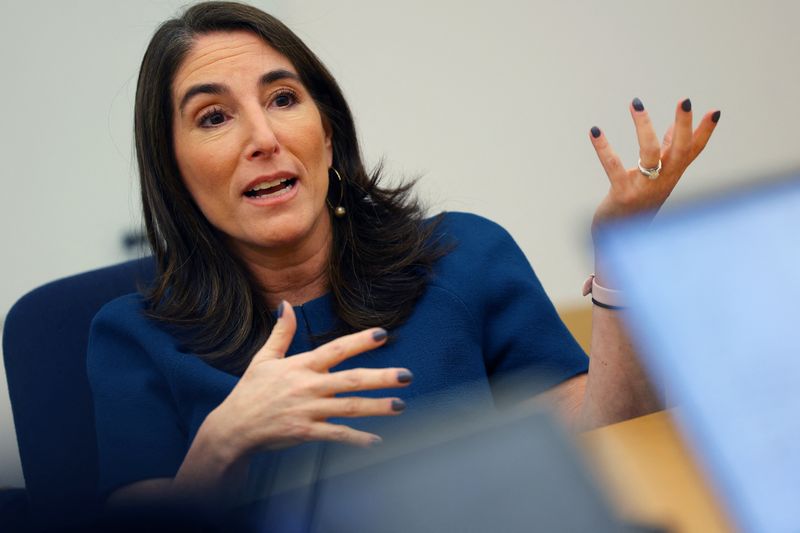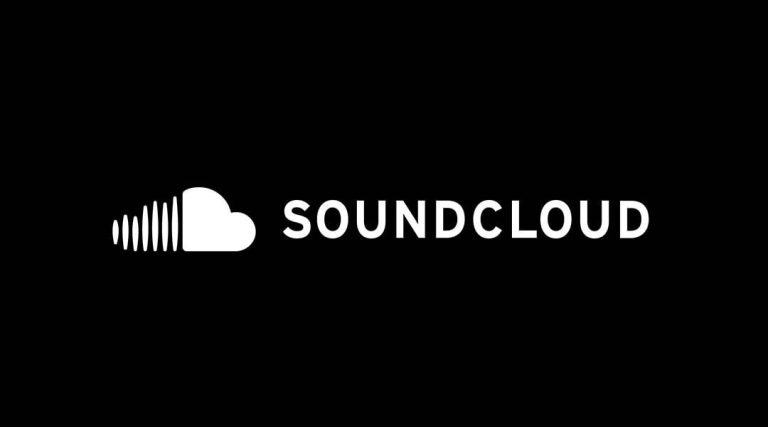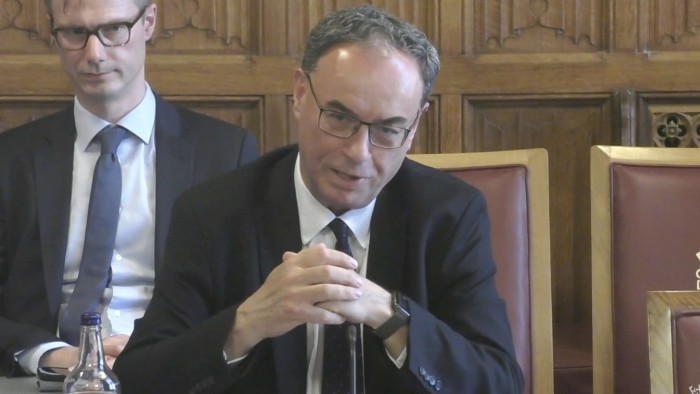By Michael S. Derby
NEW YORK (Reuters) -Federal Reserve Bank of Cleveland President Beth Hammack said Tuesday she sees no pressing need to cut interest rates when there’s still a lot of uncertainty what trade tariffs will do to inflation, which is still above the central bank’suncertainty what“Given the resilience of the economy thus far, the risks from maintaining the current policy setting appear low, and I don’t see a weakening in the economy that would merit imminent rate cuts, though I remain attentive to that possibility,” Hammack said in the text of a speech to be delivered in London.
The official, who does not have a vote on the rate-setting Federal Open Market Committee this year, said that amid a lack of clarity it is a good thing for the Fed to seek out additional information before changing policy. “It may well be the case that policy remains on hold for quite some time before the Committee initiates very modest cuts to return policy to a neutral setting,” she said.
Last week the FOMC held its overnight interest rate target steady at between 4.25% and 4.5% as officials took a wait-and-see approach to the outlook. Many central bankers are uncertain how President Donald Trump’s ever-shifting matrix of import taxes will pressure inflation and as a result they are being cautious about changing interest rate policy.
But two Fed officials over recent days—Governor Christopher Waller and Vice Chair for Supervision Michelle Bowman—have said they’re open to cutting interest rates at the late July FOMC meeting. Waller is widely viewed as a possible successor for Chairman Jerome Powell amid Trump’s steady calls for rate cuts, while Bowman was recently elevated to the role of the Fed’s top bank overseer by Trump.
Hammack cautioned in her remarks that when it comes to monetary policy in uncertain times “I would rather be slow and move in the right direction than move quickly in the wrong one.”
She noted that the Fed still has a ways to go to get inflation to its 2% target and there’s no certainty whether tariffs will have a one-time impact on inflation or if the impact will be more persistent. It’s possible that “coming after an extended period of elevated inflation, consumers and businesses may respond differently to this event than might otherwise have been the case.”
Hammack said in her speech that the economy is in a solid position and the job market looks strong. She described the current state of monetary policy as “modestly restrictive.”
(Reporting by Michael S. Derby; Editing by Chizu Nomiyama)






